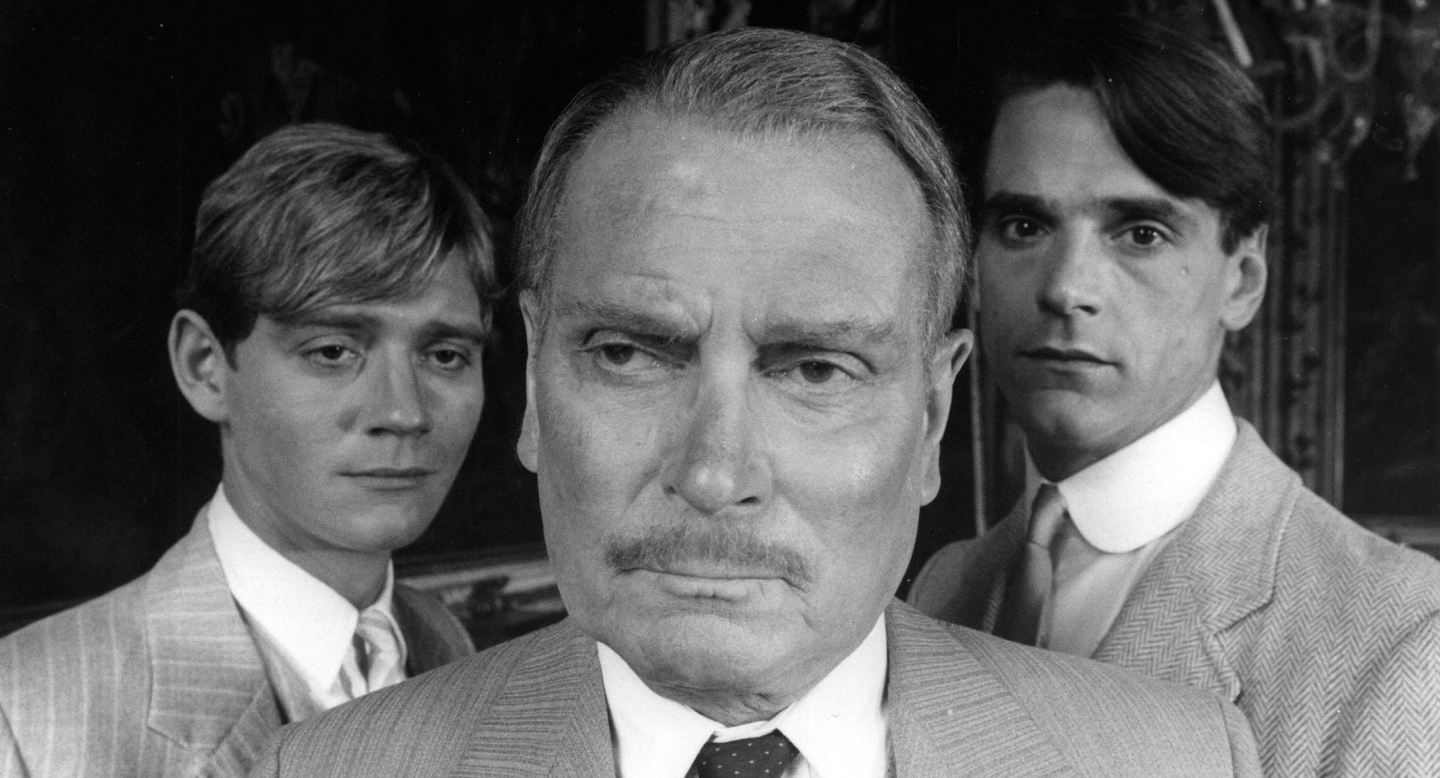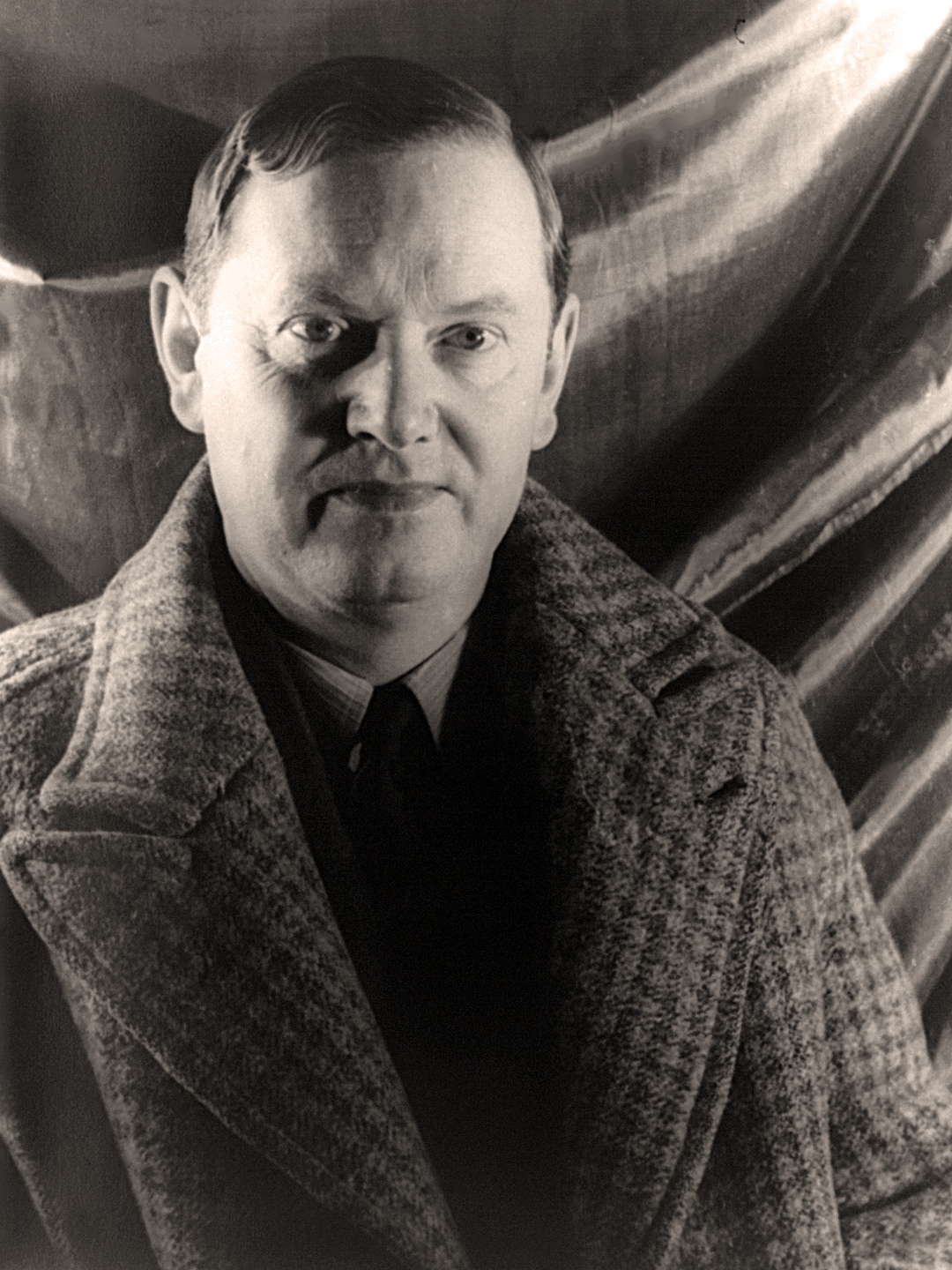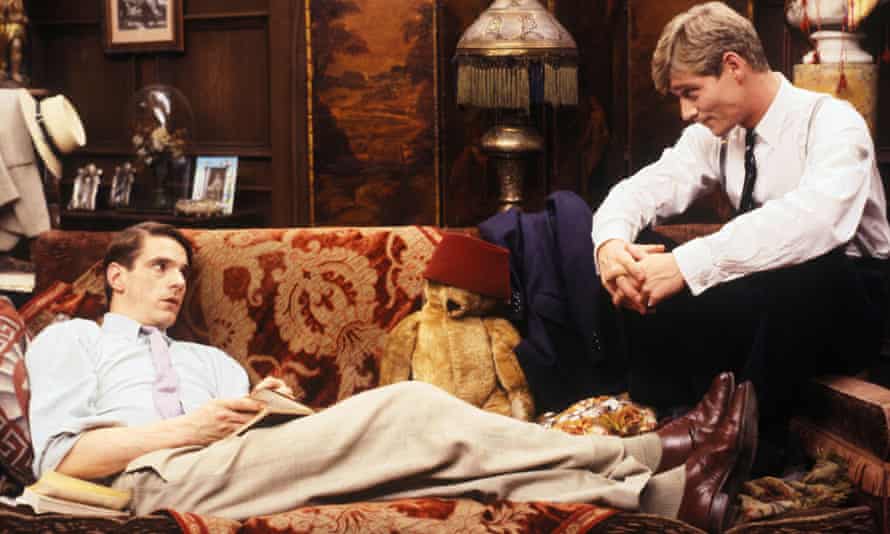I read this back in 2010 and wrote a number of posts about it on my original blog which can be seen here. At that time I read a newer Everyman edition that used the text of the 1959 revision, in which supposedly a good deal had been altered. While I liked a lot about the book at that time, I had always felt something about it was a little off, considering its reputation and the obvious affection which many people had for it. I determined that the revision must have had something to do with this, and when I knew it was coming up on the IWE list I made a point of getting a copy of the earlier edition, shown above. I cannot say that I noticed any of the supposed differences, but I did feel better having an edition of the book as it first appeared to the public, or at least the American public, in the 1940s. Whatever it is, I am sure that I have it now as much as I am ever going to.
While I was reading this there was a small kerfuffle on the internet for a few days about the academic discipline of Classics with its traditional association as the study of Greek and Latin being essentially a white supremacist field, that it needed not merely to be opened up and equal space and esteem given to the works and languages of other ancient civilizations, but all of the ideas and the mystique that underlay it more or less needed to be blown to smithereens. I made a note in my that "If people the Classics are too white, I hope they don't find out about this. (JOKE)" Then I added, "I know it is the discipline in its current incarnation, not the books themselves, that is being objected to", but I have no idea what I was getting at here, it probably is the books themselves too. Still, the world of Brideshead Revisited represents something of an epitome of what that system of education produces, in the English speaking countries at least. Perhaps Waugh and his characters can (for some people) be described simply as "white supremacists" and left at that, though that designation, applied as it is so universally and on so many occasions, doesn't really begin to do justice to the sense of physical, cultural and intellectual superiority the characters at the inner core of this novel project towards pretty much the entirety of the rest of humanity. And this was so deep that even though their houses and wealth and much of their social position erode and are lost during the course of the book this sense of themselves can never really be crushed out of them--the drive to do which by the way is very strong in the current crusades against white supremacy, which I take to account for much of the anger directed against even fairly nondescript and inoffensive white people by those who in comparative terms would seem to be indisputably more accomplished and successful and recognized as such. It's the internalized feelings of worth people retain that can in any way be attributed to "whiteness"--and these are as prevalent among the educated and enlightened, if not more so, than among the humbler classes--that seemingly cannot be eradicated in the face of all argument and even evidence against them that seems to infuriate people so wildly.
p. 45 "'I like this bad set and I like getting drunk at luncheon'; that was enough then. Is more needed now?"
I'm really going to try to keep the quotes to a minimum--in this book there is something quoteworthy on almost every page--but this might be the last time I read this, so I want to leave a few favorites to remember it by.
p. 59 Very palpable evocation of a lost world here (Oxford on Sunday morning ca. 1923): "None but church-goers seemed abroad that morning; undergraduates and graduates and wives and tradespeople, walking with that unmistakable English church-going pace which eschewed equally both haste and idle sauntering; holding, bound in black lamb-skin and white celluloid, the liturgies of half a dozen conflicting sects; on their way to St. Barnabas, St. Columba, St. Aloysius, St. Mary's, Pusey House, Blackfriars and heaven knows where besides; to restored Norman and revived Gothic, to travesties of Venice and Athens; all in the summer sunshine going to the temples of their race."
p. 225 "...the epochs of history, when a race which for centuries has lived content, unknown, behind its own frontiers, digging, eating, sleeping, begetting, doing what was requisite for survival and nothing else, will, for a generation or two, stupefy the world; commit all manner of crimes, perhaps; follow the wildest chimeras, go down in the end in agony, but leave behind a record of new heights scaled and new rewards won for all mankind; the vision fades, the soul sickens, and the routine of survival starts again." Back to the classics--this take, I think, is what many (white) men at least have traditionally had in mind as what is meant by them much of the time.
p. 227 "Hence my prosperity, far beyond my merits; my work had nothing to recommend it except my growing technical skill, enthusiasm for my subject and independence of popular notions...I did not go to Europe; her treasures were too safe, swaddled in expert care, obscured by reverence (ed--this has only gotten worse since then). Europe could wait. There would be a time for Europe, I thought; all too soon the days would come when I should need a man at my side to put up my easel and carry my paints; when I could not venture more than an hour's journey from a good hotel; when I should need soft breezes and mellow sunshine all day long; then I would take my old eyes to Germany and Italy."
p. 271-2 "You must remember I am not English; I cannot understand this keen zest to be well-bred. English snobbery is more macabre to me even than English morals...My dear, I could hardly keep still in my chair. I wanted to dash out of the house and leap in a taxi and say, 'Take me to Charles's unhealthy pictures.'" Lol. Anthony Blanche.
p. 299 "'To put it crudely,' said my cousin Jasper, as though he had ever in his life put anything otherwise..." 😄
While I am very fond of this book--it strikes as very much the kind of book that many writers, perhaps especially those of the would-be variety, would most like to write--the snobbery and pointedness of the exclusivity of this sliver of literary history at least always gets to me a little in the end. It just permeates the book so much. The narrator never really likes anyone outside of his very narrow set (granted, he doesn't even seem to like his own wife and children very much either, so maybe a mere reader should not be so sensitive with regard to it). It can be amusing, but in the end why should the rest of us have to put up with it forever? I think I was overcome by a similar reaction towards the end the first time I read this as well.
p. 231 On New York: "...it was four o'clock, but neither of us was ready to sleep, for in that city there is neurosis in the air which the inhabitants mistake for energy." Mainly interesting because New York people themselves still emphasize "energy" as the defining characteristic of their city, and by extension presumably themselves, 75 years on.
I didn't note it at the time and I cannot find it right now, but the line about Lady Marchmain's brothers who were killed in World War I--"these men must die to make a world for Hooper"--gets to everybody. And why should it? Because the type of the men who died had something, language, artistic sensibility, a sense of who they were, that we obviously don't.
I forgot to look at what the IWE had to say about this. They're always good for a unique take, or sometimes a laugh, in these matters:
"Anyone who has known the younger upper classes of London after either World War can testify that Evelyn Waugh did not overpaint their wildness, their excesses, for they could hardly be overpainted. In fact, in Brideshead Revisited Waugh was quite moderate. As a novel it is great. When all the arguments about Waugh's other works are ended, Brideshead Revisited will remain to testify that the man could write. The ambivalence produced by Catholicism in Englishmen, a favorite theme of Waugh's is accented in this novel."
This is the only one of Waugh's books that was chosen for the list. He'll have to get into and win a Challenge at some point. I think he can do it.
I have not written very much about my own thoughts regarding the book. I think that for the kind of people who like novels, in particular old-fashioned ones, this gives them a great deal of the sort of things that make them happy--fashionable London in the 20s, old Oxford, exquisite dialogue, irrepressible humor, feelings of regret about the passing of time and the necessity of change, drinking, sociability among a desirable initiate. One cannot really help oneself in luxuriating in the experience and being a little wistful at its now being past.
The Bourgeois Surrender Challenge
My newly tweaked system generated so many competitors that numerous Waugh-themed books were unable to qualify for the final. But I prefer this system overall.
1. Beverly Daniel Tatum--Why Are All the Black Kids Sitting Together in the Cafeteria?........5,539
2. Eric Metaxas--Bonhoeffer: Pastor, Martyr, Prophet, Spy.......................................................3,858
3. William Zinsser--On Writing Well..........................................................................................2,440
4. Sebastian Barry--Days Without End.......................................................................................1,337
5. Linda J. McDonald--How to Help Your Spouse Heal From Your Affair.................................1,038
6. Jane Smiley--Perestroika in Paris..........................................................................................1,004
7. Brideshead Revisited (TV--1981)..............................................................................................909
8. Alex S. Vitale--The End of Policing..........................................................................................553
9. Brideshead Revisited (movie--2008).........................................................................................499
10. Goold Brown--The Grammar of English Grammars..............................................................482
11. Kazuo Ishiguro--The Unconsoled............................................................................................341
12. Janet Burroway--Writing Fiction.............................................................................................287
13. The Riot Club (movie--2014)...................................................................................................255
14. Keeanga-Yamahtta Taylor--Race for Profit.............................................................................210
15. Eleanor Herman--Mistress of the Vatican................................................................................205
16. Judith Rich Harris--The Nurture Assumption..........................................................................165
Round of 16
#16 Harris over #1 Tatum
A matchup of superficially similar books, both social science-y, both from the late 90s, similar in length, both written by women, I suppose you could add. I gave the Harris book the nod in the end dues to its having been a finalist for the Pulitzer Prize, as well as (probably), being a subject of slightly more interest to me.
#2 Metaxas over #15 Herman
The popularity of the Bonhoeffer biography makes me mildly suspicious of it, but the Herman book, also a biography (by the author of Sex With Kings, among other best-sellers), brings with it somewhat similar objections from one of the opposite corners of the Catholic moral universe, which is enough to carry Bonhoeffer/Metaxas to the victory here. Interesting that the tournament opens with a pair of matchups between books that are mirrors of each other in certain senses.
#14 Taylor over #3 Zinsser
I think I have read the Zinsser book before, though not as a victor in this contest. I don't remember the occasion for my doing that. While I like occasionally reading "How-to-Write-Like-a-Professional" type books, especially the classic ones///(picking up after 10 day interruption) I was evidently really not in the mood to do so on March 2nd, I don't remember why. In any case they probably at this point in my career should not win in most instances if there is any other acceptable option.
#4 Barry over #13 Riot Club
#12 Burroway over #5 McDonald
McDonald does not present a particularly desirable alternative here.
#11 Ishiguro over #6 Smiley
Ishiguro wins a battle of big names.
#10 Brown over #7 Brideshead Revisited TV
#8 Vitale over #9 Brideshead Revisited movie
Elite 8
#16 Harris over #2 Metaxas
Harris is quite a bit shorter. I already had misgivings about the other book just because its number of reviews seems awfully inflated for its subject matter.
#4 Barry over #14 Taylor
Barry is 100 pages shorter while his historical novels seem to be well-received by some semi-intelligent sector of the literary world.
#8 Vitale over #12 Burroway
I'm not all that into either of these books. The End of Policing is shorter, as well as topical, though that carries no great sway with me.
#10 Brown over #11 Ishiguro
Yes, Brown has an upset.
Final Four
#4 Barry over #16 Harris
Length again, as these books are about even in attractiveness to me.
#10 Brown over #8 Vitale
Brown gets another upset, though I am not heartbroken to see Vitale eliminated.
Championship
#4 Barry over #10 Brown
I don't have time in my life right now to read an exhaustive 170 year old book on English grammar. Maybe someday.






No comments:
Post a Comment